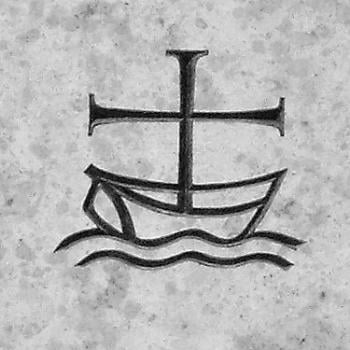"Memento, homo . . . quia pulvis es, et in pulverem reverteris" (cf. Gen. 3:19). "Remember, man, you are dust and to dust you will return."
That is a beautiful and poetic way to recall the hard reality that one day we will, indeed, die. This classic text from Genesis, still used in many Catholic churches with the distribution of ashes on Ash Wednesday, reminds us of our mortality. No matter how flowery or impressive the language, the truth remains: God's own words tell us that death will come to all of us. And we are called to bear it in mind.
It's one of the touchstones of Lent, this intentional remembering that life on earth is short compared to the promise of eternity. Our time on planet Earth really means something. And the really big questions of life are always related to certainty of death, but more than that, they are subject to the economy of grace. But we cannot appreciate one without the other. And so we must remember.
I have vivid memories whereby I have grappled with my own mortality, both in and out of the season of Lent.
When I was little, there was a fire in my grandmother's house. No one was hurt, but I remember the resulting thick black dust and ash. Much was lost. But the family was safe despite the shock of soot and cinders that remained. Th style="padding-left: 30px;"at was my earliest memory of how someone might actually die. And that it could happen overnight without notice.
Decades later in 1991, I was a young mother driving our modest sedan to morning Mass with our two children strapped into car seats. I drove up a notoriously steep hill when suddenly, from the top of the hill, an oncoming car swerved into our lane.
Before that moment I thought that "having one's life flash before one's eyes" was just an expression. Like an ethereal movie playing above the dashboard, brief scenes from my life flickered before me. Remarkably, a simultaneous adrenalin rush jolted me to take evasive action. Still, the resulting collision totaled our car, and took off the front end of a Camaro that belonged to a sleepy young woman coming home from a third shift. Thankfully, the children emerged unharmed, as was the other driver. It took me a year to recover from that whiplash.
Eventually I healed and moved on, armed with fearsome knowledge that life can be changed in an instant.
And then it did happen. Again.
In May 1996, I was a mother of three when a pathology report changed my life, indicating I had an early breast cancer. This time there was no split-second Technicolor mental movie. I had months to deal with the deeper, more drawn-out life assessment that accompanies a cancer patient and, really, any person diagnosed with a serious illness.
Getting in touch with one's mortality is often a messy but necessary business. And it usually comes upon us in the harder times. There is the confronting of the pangs of bodily ills or limitations, but also the disorders of one's soul. And it is often hard to discern which one demands the most attention. It is really hard to separate one from the other; on some level, you realize you must deal with the whole of it.
The Catholic Church gets this about us and supplies what we need. As human persons we are body and soul. Both were designed for eternity. Both need to be tended-to as a unity; that's why the sacraments are both supernatural (graces poured out) and temporal (uses of form and matter—the prayers and the earthly signs of water, bread, wine, oil, vows, etc.).
So, long before we come to our natural death, there are seasonal, weekly, and yes, even daily opportunities to grow in the grace of recalling, not only that we will die, but that we will live. The seed of eternity is found in our very souls.
The Catholic Church reminds us—all through Lent, but also at Mass, funerals, and the anointing of the sick—that there is something more we are to seek. Truly, something lies beyond what we can fully understand at the moment. Yet its reality is deeply intuitive; it only bubbles to the surface when our lives are threatened.
It is in the face of death that the riddle of human existence grows most acute. Not only is man tormented by pain and by the advancing deterioration of his body, but even more so by a dread of perpetual extinction. He rightly follows the intuition of his heart when he abhors and repudiates the utter ruin and total disappearance of his own person. He rebels against death because he bears in himself an eternal seed which cannot be reduced to sheer matter. All the endeavors of technology, though useful in the extreme, cannot calm his anxiety; for prolongation of biological life is unable to satisfy that desire for higher life which is inescapably lodged in his breast.





